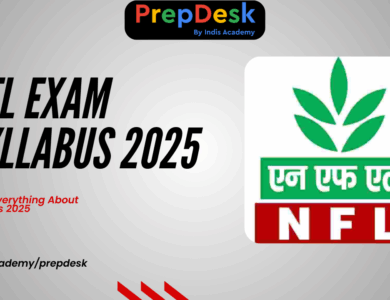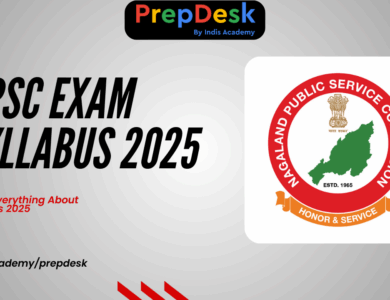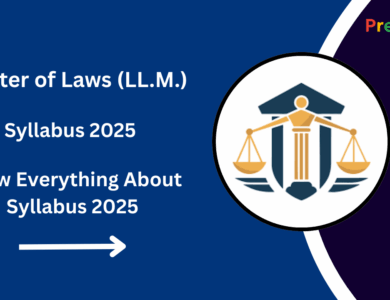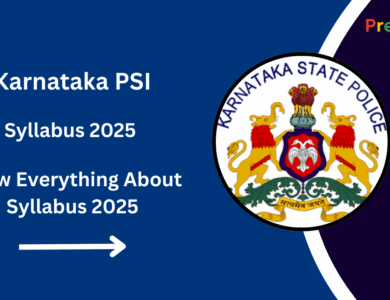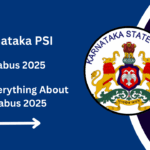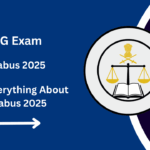CBSE Class 11th NCERT Syllabus 2025–26 | Free PDF Download & Topic Breakdown
Explore the complete CBSE Class 11th NCERT Syllabus for the 2025–26 academic year. Download free subject-wise PDFs, chapter-wise breakdowns, deleted topics, marking scheme, and expert preparation tips.
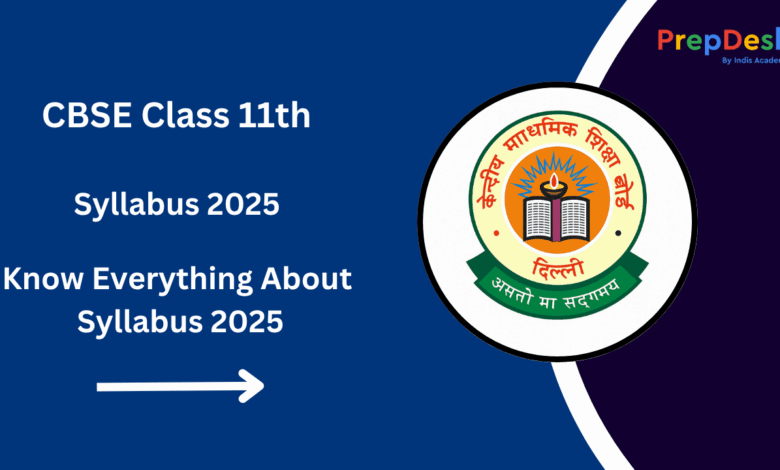
The CBSE Class 11 NCERT Syllabus for the academic year 2025–26 is a comprehensive roadmap designed to bridge the gap between secondary and senior secondary education. It lays a solid foundation for Class 12 and competitive exams like JEE, NEET, CUET, and others. The syllabus emphasizes:
- Building strong conceptual foundations
- Enhancing problem-solving and analytical skills
- Encouraging practical application of knowledge
Students from Science, Commerce, and Humanities streams will benefit from this structured approach, supporting both academic success and career readiness.
Exam Overview
| Parameter | Details |
|---|---|
| Exam Conducting Body | Central Board of Secondary Education (CBSE) |
| Academic Year | 2025–26 |
| Streams | Science, Commerce, Humanities |
| Assessment Pattern | Competency-based: MCQs 50%, Constructed Response 30%, Others 20% |
| Maximum Marks | 100 (80 theory + 20 internal) per subject |
| Internal Assessment | Practical work, projects, periodic tests |
The exam framework balances conceptual clarity with skill-based evaluation, preparing students for higher education and competitive exams.
Subject-Wise Syllabus & Marks Distribution
Mathematics
| Unit | Topics | Marks |
|---|---|---|
| Sets & Functions | Sets, operations, functions, domain & range | 23 |
| Algebra | Complex numbers, quadratic equations, sequences & series | 25 |
| Coordinate Geometry | Straight lines, conic sections | 12 |
| Calculus | Limits, derivatives | 8 |
| Statistics & Probability | Measures of dispersion, probability | 12 |
| Internal Assessment | Assignments, projects | 20 |
| Total | — | 100 |
Preparation Tip: Focus first on Algebra and Sets & Functions as they carry the highest weightage.
Physics
| Unit | Topics | Marks |
|---|---|---|
| Physical World & Measurement | Units, dimensions, errors | 23 |
| Kinematics & Laws of Motion | Motion in 1D/2D, Newton’s laws | 17 |
| Work, Energy & Power | Work-energy theorem | 9 |
| System of Particles & Rotational Motion | Torque, angular momentum | 9 |
| Gravitation | Laws, satellites | 6 |
| Properties of Bulk Matter | Elasticity, fluid mechanics | 11 |
| Thermodynamics | Laws, heat engines | 9 |
| Oscillations & Waves | SHM, wave motion | 8 |
| Practical/Project | Experiments, lab work | 30 |
| Total | — | 100 |
Preparation Tip: Practical experiments are crucial to secure full internal marks.
Chemistry
| Unit | Topics | Marks |
|---|---|---|
| Some Basic Concepts | Mole concept, stoichiometry | 11 |
| Structure of Atom | Bohr model, quantum numbers | 9 |
| Classification of Elements | Periodic table | 6 |
| Chemical Bonding | VSEPR theory, hybridisation | 14 |
| States of Matter | Gaseous/liquid states | 6 |
| Thermodynamics | Laws, enthalpy | 6 |
| Equilibrium | Chemical & ionic | 6 |
| Redox & Hydrogen | Basics of redox, water chemistry | 5 |
| Organic Chemistry Basics | Nomenclature, isomerism | 6 |
| Hydrocarbons & Environmental Chemistry | Alkanes, alkenes | 7 |
| Practical | Titrations, qualitative analysis | 30 |
| Total | — | 100 |
Preparation Tip: Consistent theory learning and lab work are essential.
English Core
| Section | Components | Marks |
|---|---|---|
| A | Reading Skills | 26 |
| B | Grammar & Writing | 23 |
| C | Literature (Hornbill & Snapshots) | 31 |
| Assessment | Speaking & Listening skills | 20 |
| Total | — | 100 |
Preparation Tip: Daily practice of comprehension and vocabulary boosts performance.
Hindi (Core/Elective)
| Unit | Topics/Components | Marks |
|---|---|---|
| Reading Skills | Prose and Poetry comprehension | 20 |
| Writing Skills | Letter writing, Essay, Notice, Formal/Informal letters | 20 |
| Grammar | Tenses, Sentence formation, Sandhi, Samas | 20 |
| Literature | Textbook lessons (Prose and Poetry) | 30 |
| Internal Assessment | Speaking, listening, project work | 10 |
| Total | — | 100 |
Preparation Tip: Regular practice of writing and speaking along with grammar drills is key.
(Commerce and Humanities subjects have similar detailed breakdowns available in the official PDFs.)
Syllabus PDF Download Links
Downloading the syllabus ensures you stay updated on any modifications during the academic year.
Recommended Books
| Subject | Primary Textbook | Reference Books |
|---|---|---|
| Mathematics | NCERT Maths Class 11 | R.D. Sharma, Together with Mathematics |
| Physics | NCERT Physics Part I & II | H.C. Verma, D.C. Pandey |
| Chemistry | NCERT Chemistry Part I & II | O.P. Tandon, Pradeep’s Chemistry |
| Biology | NCERT Biology | Trueman’s Biology |
| Accountancy | NCERT Accountancy | T.S. Grewal |
| Economics | NCERT Economics | Sandeep Garg |
| English | NCERT Hornbill & Snapshots | Wren & Martin Grammar |
| Hindi | NCERT Hindi Core/Elective Books | Various Hindi Grammar Books |
Preparation Tips
- Know the Weightage: Focus on high-priority chapters first.
- Start with NCERT: Build your base before using reference books.
- Practice MCQs and Case Studies: These form a significant part of exams.
- Time Management: Follow a study timetable strictly.
- Regular Revision: Weekly revision and quick notes help retention.
- Focus on Internal Assessments: Projects and practicals can boost marks easily.
- Group Study: Discussing topics reinforces learning.
Specialization Guidance
- Science Stream: Best for careers in engineering, medicine, and research.
- Commerce Stream: Opens opportunities in finance, accounting, and management.
- Humanities Stream: Suitable for law, journalism, civil services, and arts.
Conclusion
The CBSE Class 11 NCERT Syllabus 2025–26 is balanced, focusing equally on theory, application, and skills development. Early preparation combined with smart study strategies and regular practice will ensure academic excellence and readiness for competitive exams.
FAQs
- Q1. Has the syllabus changed for 2025–26?
- Yes, minor adjustments have been introduced; always refer to the latest official PDFs.
- Q2. Is NCERT enough for preparation?
- NCERT is fundamental, but reference books offer additional practice and depth.
- Q3. Where can I download the syllabus?
- From the CBSE official portal and trusted educational websites.
- Q4. What is the typical marks division?
- 80 marks for theory and 20 marks for internal assessments.
- Q5. Are practicals mandatory?
- Yes, especially for science and certain commerce/humanities subjects.
